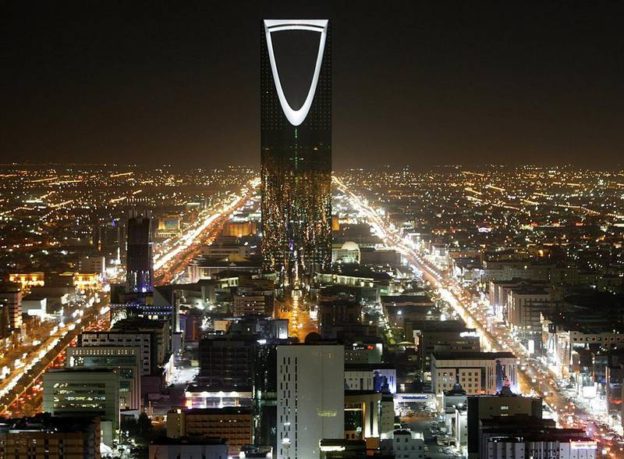Riyadh’s multi-pronged structural reform agenda is supporting its economic and fiscal diversification efforts to deliver on its social commitments under Saudi Vision 2030
Moody’s Investors Service has changed Saudi Arabia’s outlook to positive from stable, noting that it has made “significant” progress in the implementation of its economic programmes.
The kingdom’s long-term issuer and senior unsecured ratings were affirmed at an investment-grade A1, while the government’s senior unsecured medium-term note programme ratings were also affirmed at (P)A1, the New York-based credit rating company said in a release on Friday.
Moody’s said Riyadh’s multi-pronged structural reform agenda, which was launched in 2016, has made “significant progress” in supporting its economic and fiscal diversification efforts to deliver on its social commitments under the major Saudi Vision 2030 programme.
The change to positive reflects “the increasing likelihood that, through reforms and investment in various non-oil sectors, the sovereign’s economic and fiscal reliance on hydrocarbons will, over time, materially decline, thereby reducing its exposure to oil price cycles and a potential acceleration in global carbon transition,” Moody’s said.
“The government is making progress in implementing its broad-based structural reform agenda, which will support the sustainability of the economic diversification efforts over the medium and long term.”
Saudi Arabia is in the middle of a major economic diversification drive under its Vision 2030 agenda, amid a push to reduce its reliance on oil and tap into other high-growth industries to boost its economy, create more jobs and attract private investment.
The initiative has propelled the Arab world’s biggest economy. Saudi Arabia had the highest annual growth rate among the world’s 20 biggest economies in 2022, according to the latest data from the Organisation for Economic Co-operation and Development.
The kingdom expanded 8.7 per cent last year on higher oil prices and the strong performance of its non-oil private sector.
Business confidence in the non-oil economy of Saudi Arabia hit a two-year high in January as output growth in the kingdom strengthened the Riyad Bank purchasing managers’ index showed last month.
The reading was the second-highest recorded since September 2021, following the recent high in November, driven by an acceleration in growth of output, new orders and stocks of purchases, it said.
“The reforms, which are improving Saudi Arabia’s business environment and investment climate, also raise the prospect that robust non-hydrocarbon sector growth and employment growth will be sustained without excessive reliance on public spending,” Moody’s said.
Moody’s affirmation of Saudi Arabia’s ratings reflects the government’s moderate debt burden, which is lower than most similarly-rated sovereigns.
It also shows the availability of “robust” fiscal buffers in the form of government financial assets and high economic strength underpinned by the country’s highly competitive position in the global oil market, where it is the world’s leading oil exporter.
“Saudi Arabia’s rating is constrained mainly by its structural vulnerability implied by its economic and fiscal reliance on the hydrocarbon sector, and by its susceptibility to event risks related to regional geopolitical tensions,” it said.
Oil prices settled lower on Friday, reversing earlier gains to post their biggest weekly declines in months amid turmoil in global financial markets stemming from fears of a banking crisis. Brent slid 2.32 per cent to settle at $72.97 a barrel, while West Texas Intermediate (WTI) lost 2.36 per cent to close at $66.74 a barrel.
For the week, Brent declined 12 per cent, its worst weekly showing since December, while WTI shed 13 per cent, its lowest since April 2022. Year-to-date, Brent is down about 15 per cent, while WTI has dropped nearly 17 per cent.
Moody’s expects oil exports to produce less robust revenues at peak oil prices and weaker revenues at trough oil prices compared to historical experience.
This is because “global initiatives to limit the adverse impacts of climate change will increasingly constrain the use of hydrocarbons and accelerate the shift to less environmentally-damaging energy sources”.
“For Saudi Arabia, the credit impact of carbon transition is mitigated by the sovereign’s demonstrable adjustment capacity and its progress on economic and fiscal diversification.”
https://www.thenationalnews.com/business/economy/2023/03/18/moodys-changes-saudi-arabias-outlook-to-positive-as-reforms-make-significant-progress/





